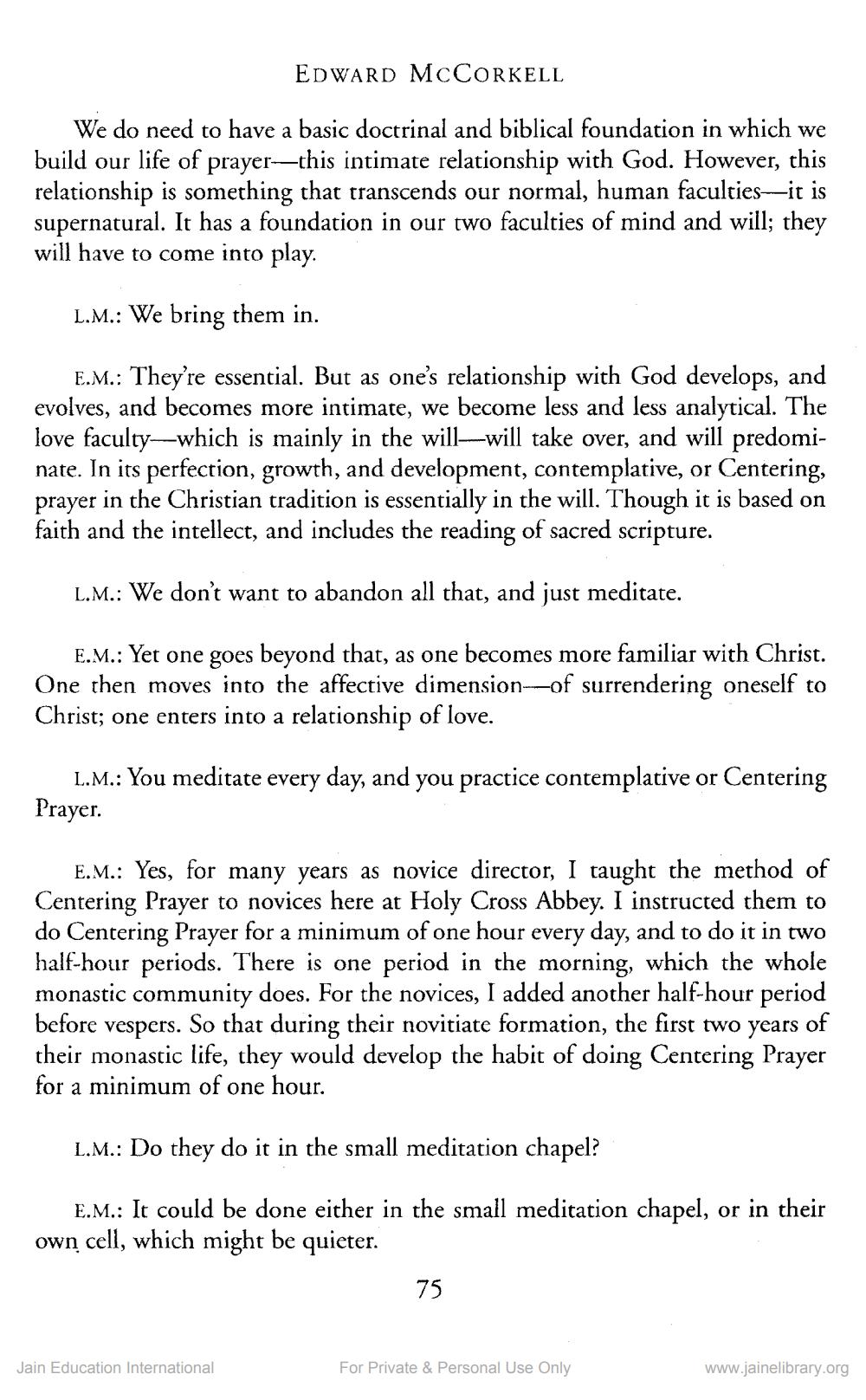________________
EDWARD MCCORKELL
We do need to have a basic doctrinal and biblical foundation in which we build our life of prayer-this intimate relationship with God. However, this relationship is something that transcends our normal, human faculties—it is supernatural. It has a foundation in our two faculties of mind and will; they will have to come into play.
L.M.: We bring them in.
E.M.: They're essential. But as one's relationship with God develops, and evolves, and becomes more intimate, we become less and less analytical. The love faculty-which is mainly in the will-will take over, and will predominate. In its perfection, growth, and development, contemplative, or Centering, prayer in the Christian tradition is essentially in the will. Though it is based on faith and the intellect, and includes the reading of sacred scripture.
L.M.: We don't want to abandon all that, and just meditate.
E.M.: Yet one goes beyond that, as one becomes more familiar with Christ. One then moves into the affective dimension-of surrendering oneself to Christ; one enters into a relationship of love.
L.M.: You meditate every day, and you practice contemplative or Centering Prayer.
E.M.: Yes, for many years as novice director, I taught the method of Centering Prayer to novices here at Holy Cross Abbey. I instructed them to do Centering Prayer for a minimum of one hour every day, and to do it in two half-hour periods. There is one period in the morning, which the whole monastic community does. For the novices, I added another half-hour period before vespers. So that during their novitiate formation, the first two years of their monastic life, they would develop the habit of doing Centering Prayer for a minimum of one hour.
L.M.: Do they do it in the small meditation chapel?
E.M.: It could be done either in the small meditation chapel, or in their own cell, which might be quieter.
Jain Education International
75
For Private & Personal Use Only
www.jainelibrary.org




